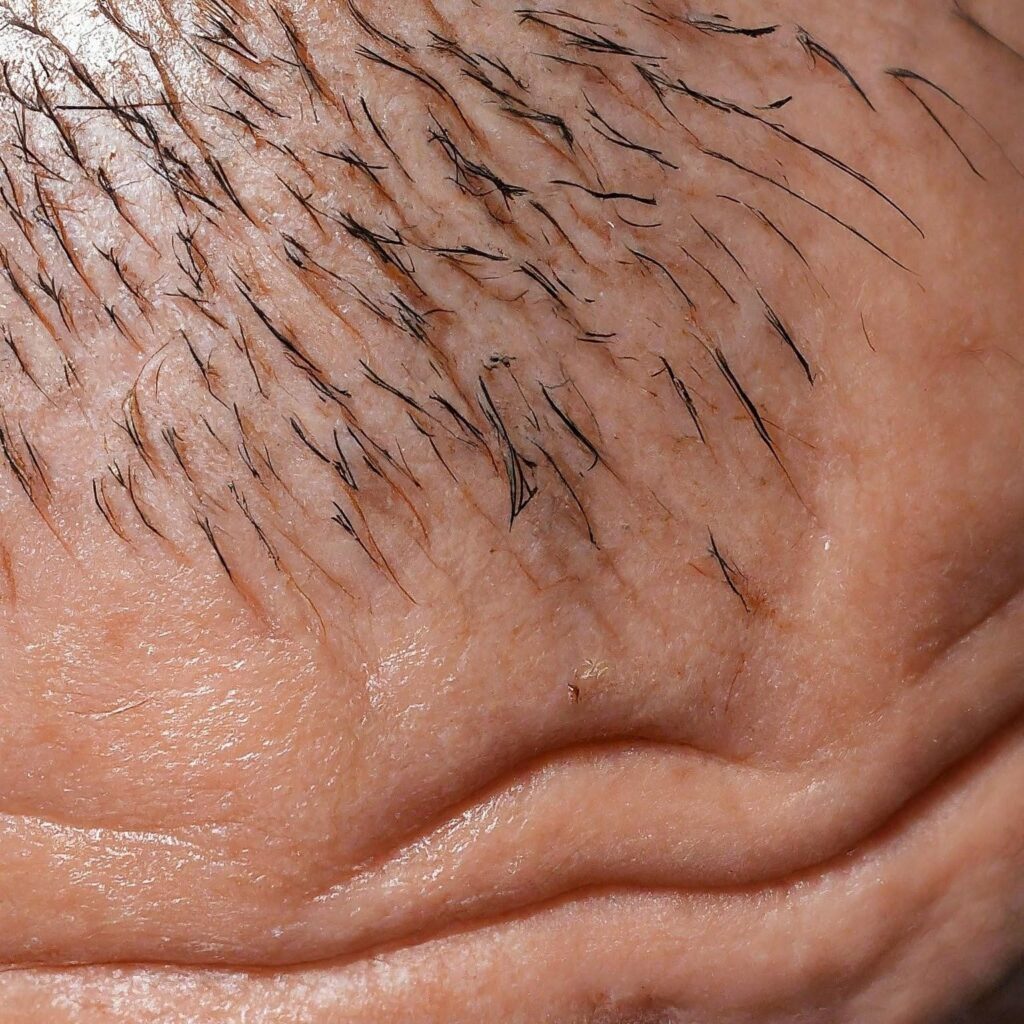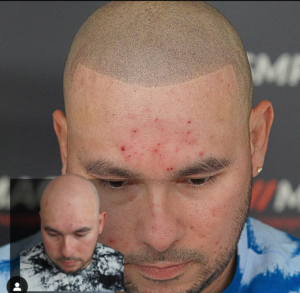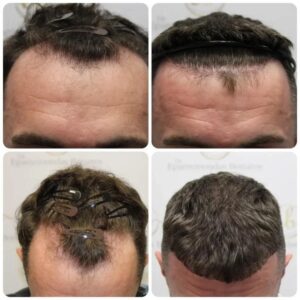The issue of alopecia and pattern baldness is an important one as it affects millions of people worldwide. Understanding why your hair is dropping out is the first step towards finding an effective solution.
Recent technological developments like the introduction of JW0061, for instance, means that you have various options when finding effective solutions. These solutions can either manage or completely improve your hair and scalp. One popular solution to pattern baldness in recent times is scalp micropigmentation. And we will discuss that further in this article.
We will also explore the common causes of hair loss and provide practical solutions for managing and treating this condition.

Image Credit: Pexels
Table of Contents
Key Takeaway
Hair loss can result from various factors, including genetics, diet, stress, and underlying health conditions. Identifying the cause is crucial for determining the best treatment approach. At Mac SMP, we offer a range of solutions, from lifestyle tips to advanced treatments like Scalp Micropigmentation (SMP), to help you combat hair loss and restore your confidence.
Common Causes of Hair Dropping Out
Your hair dropping out may be due to various reasons. Identifying the cause of alopecia is a big step in finding solutions to this condition. Some of the common causes of hair dropping out include:
● Hereditary
One of the most prevalent causes of hair loss is genetics. Androgenetic alopecia, commonly known as male or female pattern baldness, is inherited and can start as early as your teens. This condition typically follows a predictable pattern of receding hairline, thinning hair on the crown and temples in men, and overall thinning in women. While it can’t be cured, it can be managed with various treatments we will discuss later.
● Diet
Your diet plays a significant role in the health of your hair. Deficiencies in essential nutrients such as iron, protein, and vitamins like B12 and D can lead to hair thinning and loss. A balanced diet rich in these nutrients supports healthy hair growth. Ensuring you consume a variety of fruits, vegetables, lean proteins, and whole grains can help maintain the health of your hair.
● Physical/Emotional Stress
Stress, whether physical or emotional, can trigger hair loss. Physical stress from surgeries, illnesses, or significant weight loss can shock the hair cycle, pushing hair into the shedding phase. Emotional stress can also lead to hair loss conditions such as telogen effluvium, which causes hair follicles to enter a resting phase prematurely. Managing stress through relaxation techniques and healthy lifestyle choices can help reduce hair loss.
● Hormonal Changes
Hormonal imbalances, particularly in women, can cause hair loss. Conditions such as Polycystic Ovary Syndrome (PCOS), pregnancy, childbirth, and menopause can disrupt hormone levels and impact hair growth. In men, hormonal changes due to aging can also contribute to hair loss. Identifying and addressing these hormonal changes can help manage hair loss effectively.
● Medical Conditions
Certain medical conditions and treatments can lead to hair loss. Thyroid disorders, autoimmune diseases like alopecia areata, and scalp infections can cause hair to fall out. Additionally, treatments such as chemotherapy for cancer can result in temporary hair loss. Consulting with a healthcare provider to manage these conditions is essential for addressing hair loss.
Tips to Manage Your Hair Dropping Out
1. Massage
Regular scalp massages stimulate blood circulation to the hair follicles, promoting hair growth and thickness. Using your fingertips, gently massage your scalp in circular motions for a few minutes daily. This simple practice can also help reduce stress and improve overall scalp health.
2. Aloe Vera
Aloe vera has soothing and anti-inflammatory properties that can benefit the scalp. Applying aloe vera gel directly to the scalp can reduce dandruff, unblock hair follicles, and promote healthy hair growth. Leave the gel on for about an hour before rinsing it with a mild shampoo.
3. Essential Oils
Essential oils like lavender, peppermint, and cedarwood have been shown to promote hair growth and improve scalp health. Dilute a few drops of essential oil in a carrier oil like coconut or jojoba oil and massage it into your scalp. Regular use can help strengthen hair follicles and reduce hair loss.
4. Rosemary Oil
Rosemary oil is another effective remedy for hair loss. Studies have shown that it can improve hair thickness and growth due to its ability to increase blood circulation to the scalp. Mix a few drops of rosemary oil with a carrier oil and apply it to your scalp a few times a week for the best results.

Hair Dropping Out? 3 Best Treatment Solutions
I. Scalp Micropigmentation (SMP)
Scalp Micropigmentation (SMP) is a non-surgical, cosmetic solution for hair loss offered at Mac SMP.
This technique involves depositing tiny pigment particles into the scalp to create the appearance of a fuller head of hair. SMP can effectively camouflage thinning areas and scars from hair transplant surgery and create a shaved-head look for those with extensive hair loss.
The procedure is minimally invasive, has little downtime, and can provide long-lasting results.
At Mac SMP, we specialize in tailored hair loss treatments, ensuring our clients regain their confidence and enjoy an appearance that gives a fuller head of hair. Get a free consultation today. You can also enjoy the ease of our flexible payment plans if you decide to hire our service.
II. Medication
Medications such as minoxidil (Rogaine) and finasteride (Propecia) are commonly prescribed for hair loss. Minoxidil is a topical treatment that stimulates hair growth, while finasteride is an oral medication that reduces hair loss by blocking the hormone responsible for hair follicle shrinkage. Both treatments require consistent use and consultation with a healthcare provider to ensure effectiveness and monitor for side effects.
III. Transplant Surgery
Hair transplant surgery is a more permanent solution for hair loss. This procedure involves moving hair follicles from areas of the scalp with thicker hair to thinning or balding areas. There are two main types of hair transplant surgery: follicular unit transplantation (FUT) and follicular unit extraction (FUE).
Wrapping Up
Understanding the cause of hair loss is essential for finding the right solution. Various ways exist to manage and treat hair loss, whether due to genetics, diet, stress, hormonal changes, or medical conditions.
So, is your hair dropping out? Then, Mac SMP has solutions for this problem. Book a consultation on our site to get started.
At Mac SMP, we offer a range of treatments from lifestyle tips to advanced procedures like Scalp Micropigmentation to help you combat hair loss and regain your confidence. If you’re struggling with hair loss, don’t hesitate to contact our experts for a personalized consultation and start your journey to healthier hair today.
Enjoy This Article? You May Also Like:
- Achieving a Full Head of Hair with Surgical Hair Implants
- Alopecia baldness explained: Causes, treatments, and How Mac SMP can Help
- Balding Hair: Myths Vs. Facts And Effective Strategies To Combat It
- Hair Loss Thinning: Causes, Prevention And Treatment Options
- Scalp Micropigmentation Training: From Beginner To Mastery – The Ultimate Guide To Becoming An SMP Technician




